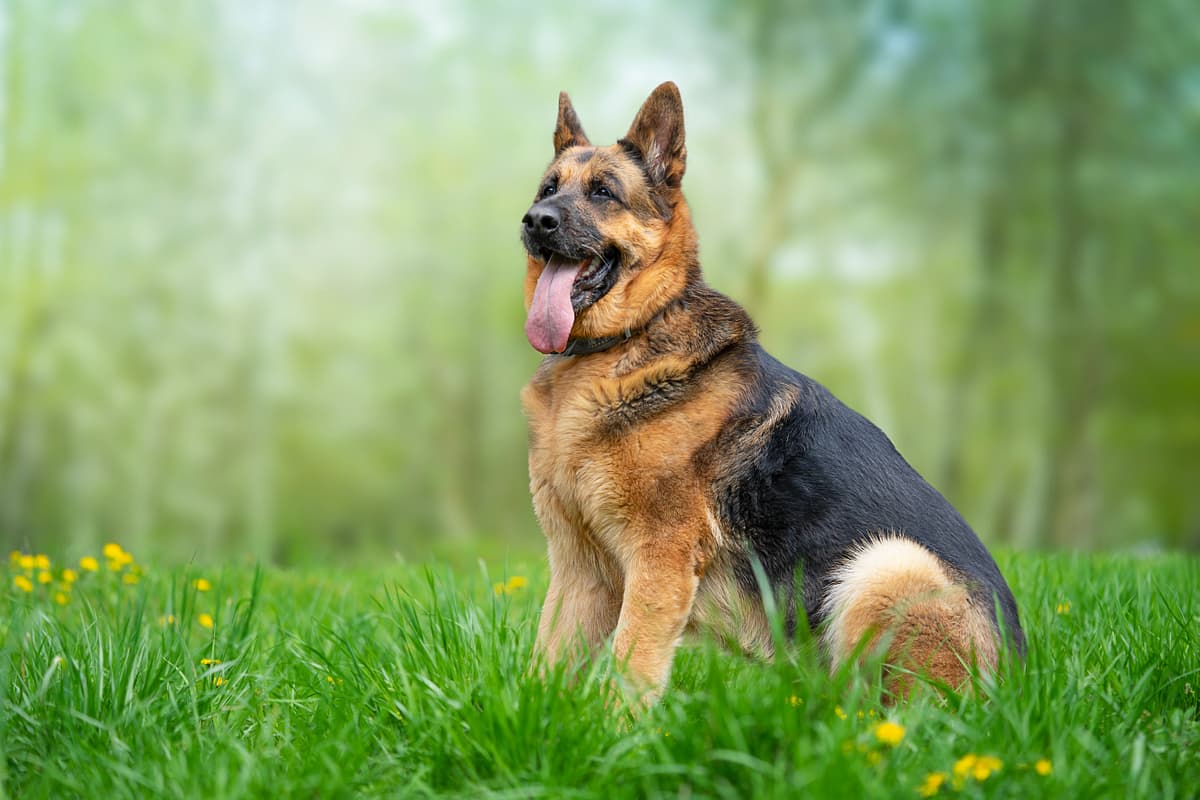Sussex Spaniel vs German Shepherd
Discover the differences between Sussex Spaniel and German Shepherd to make the best choice for your situation.
Try different breeds

Sussex Spaniel
Affectionate, loyal, and steady, the Sussex Spaniel thrives as a gentle companion with a soulful gaze. Its calm nature and cheerful disposition suit laid-back families and quiet households.

German Shepherd
Confident, loyal, and highly intelligent, this breed thrives as both a devoted family companion and a reliable working partner. Always alert and eager to learn, it adapts to many roles with ease.
Quick comparison
Medium
18–23 kg
Flat, silky
12–15 years
16–20 kg
Moderately active
Large
30–40 kg
Double coat, dense undercoat
9–13 years
22–32 kg
High energy
Personality & behavior
Compare the personality traits and behavioral characteristics of both breeds.
Sussex Spaniel
Warm, affectionate with family and familiar people
Learns steadily, responds well to gentle training
Enjoys activity but prefers a slower pace
Likes gentle games, not overly exuberant
Adjusts moderately to new settings and changes
German Shepherd
Warm with family, reserved with strangers
Quick learner, highly trainable and alert
Needs regular activity and vigorous exercise
Enjoys games, interactive and engaging
Adjusts well to new situations and environments
Care needs
Exercise, grooming, and daily care requirements
Sussex Spaniel
Ear infections, hip dysplasia
German Shepherd
Hip dysplasia, elbow dysplasia
Suitability
How well each breed fits different living situations and families
Sussex Spaniel
Good option
Sussex Spaniels are gentle and easygoing, making them manageable for most beginners.
Suitable choice
Their moderate size and calm nature suit apartment environments if exercised daily.
Moderate match
They enjoy moderate activity but are not high-energy sporting dogs.
Very friendly
Their gentle temperament typically makes them patient with young children.
Usually compatible
They generally get along well with other dogs and pets in the household.
Not ideal
Sussex Spaniels dislike being left alone for long periods and may develop separation anxiety.
German Shepherd
Challenging for beginners
Needs experienced, consistent training and socialization
Not ideal
Needs space and frequent exercise to prevent boredom
Perfect fit
Thrives with active owners who can provide daily physical and mental challenges
Highly suitable
Loyal and protective, can be gentle and patient with proper socialization
Usually compatible
Can get along with other pets if raised together and well socialized
Prone to anxiety
Dislikes being left alone for long periods and may develop behavioral issues
Breed strengths
What each breed excels at and their best qualities
Sussex Spaniel
- Gentle with family members
- Steady and calm temperament
- Good with children and pets
- Strong scenting ability for tracking
- Loyal and affectionate companion
German Shepherd
- Highly intelligent and quick to learn tasks
- Strong loyalty to family members
- Excellent working and service dog abilities
- Protective instincts make them good guardians
- Adaptable to various training activities
Challenges & considerations
Potential challenges and considerations for each breed
Sussex Spaniel
- Prone to weight gain if overfed
- Can be stubborn during training sessions
- Needs regular ear cleaning to prevent infections
- Tends to bark when bored or lonely
- Requires daily exercise to prevent restlessness
German Shepherd
- Prone to hip and elbow dysplasia
- High exercise needs require daily activity
- Can develop separation anxiety if left alone
- May be wary of strangers without socialization
- Heavy seasonal shedding requires frequent grooming
Ready to choose your perfect breed?
Learn more about each breed or compare other breeds to find the perfect match for your lifestyle.
Discover more helpful tools
Make use of our other free tools to get the most out of your pet experience
